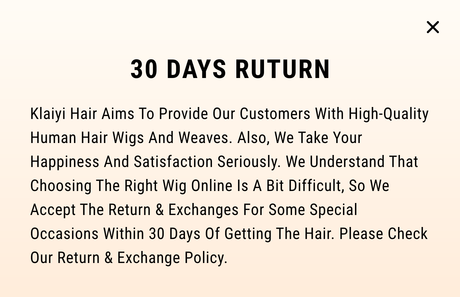Join The Forum To Get inspired Ideas
Does A Fringe Give You Hair Damage?
Whether or not fringe can cause hair damage is a common concern for those who style their hair in this way. While fringe can enhance one's appearance, improper care and styling techniques can lead to damaged fringe. The following explores how fringe affect hair health and tips for maintaining them.
1. How do fringe cause damage?
1 Heat Styling
One of the leading causes of hair damage associated with fringe is heat styling. Many people use hair straighteners or curling irons to style their fringe, which can lead to heat damage if not handled carefully.
For example, using heat without a heat protectant can cause hair to become brittle and lead to breakage. This is especially true for fringe, which are often styled in order to maintain their shape and appearance.
2 Chemical Treatments
Fringe are often chemically treated with bleaching or coloring, which can weaken the hair. Over-processing can lead to dry, frizzy and damaged hair, making it more susceptible to breakage.
If the rest of the hair is healthy but the fringe are damaged, this can result in an uneven appearance and may require frequent trims to maintain the desired hairstyle.
3 Friction and Tension
Fringe can also be damaged by friction and tension. For example, constantly running your fingers through your fringe or tying them back may cause them to break.
Additionally, using hair ties that are too tight can put pressure on the strands, leading to what is known as traction alopecia, where the hair begins to thin or fall out.
2. How can I prevent damage to my fringe?
1 Use a heat protectant
Always apply a heat protectant before using any heat styling tools. This creates a barrier that helps minimize the damage caused by the heat and keeps fringe looking smooth without compromising their health.
2 Limit heat styling
Try to reduce the frequency of heat styling. Embrace natural textures or opt for air-drying techniques whenever possible. If heat styling is needed, use the lowest effective temperature to achieve the desired look.
3 Routine Trimming
Regular trimming is vital to keeping your fringe healthy. This helps remove split ends and prevents further damage to the hair shaft. Trim every 6-8 weeks to keep fringe looking fresh and healthy.
4 Deep Conditioning Treatment
Incorporate deep conditioning treatments into your hair care routine to restore moisture and repair damage. Look for products designed specifically for damaged hair, which can help improve the overall health of fringe and the rest of your hair.
5 Gentle Treatment
Pay attention to how you treat your fringe. Use a wide-toothed comb to comb through your hair and avoid pulling it. When tying your fringe back, choose a soft hair tie that won't cause breakage.
3. Why is regular trimming important?
Prevent Split Ends:
Regular trimming helps to remove split ends before they move up the hair shaft, which can otherwise lead to further damage and breakage. Trimming your fringe ensures they stay healthy and manageable.
Maintain shape:
Fringe can quickly lose their shape as they grow. Frequent trimming helps to maintain the contour of your fringe, ensuring that they frame your face well and complement your overall hairstyle.
Manage Growth:
Hair grows at different rates, but fringe usually grow faster than other sections of hair. Trimming them every three to four weeks allows for consistent management of their length and style.
4. What are some signs that fringe need a trim?
Recognizing when your fringe (or fringe) need to be trimmed is crucial to maintaining a fresh, shiny look. Here are some key signs that indicate it's time for a trim:
1. Length issues
If your fringe are starting to cover your eyes or block your view, it's a sign that they need a trim. fringe usually grow quickly and maintaining the desired length is crucial for both style and function.
2. Transformation
As they grow, fringe may lose their intended shape. If they begin to look uneven or lose their defined style (whether straight fringe, side-swept fringe, or windowpane fringe), then a little trimming is needed to restore their original look.
3. Split ends
Just like the rest of your hair, fringe can develop split ends. If you notice frayed or damaged ends, make sure you trim them to prevent further damage to the hair shaft. Regular trimming will help keep your fringe healthy.
4. Curls and Texture Changes
If your fringe have become curly or have a strange texture, this could indicate damaged or dry fringe. Trimming can help remove damaged sections and refresh the overall look.
5. Difficulty in design
If you find that your fringe are becoming increasingly difficult to style, it may be time for a trim. Maintaining the correct length can make styling easier and more effective.
5. Recommend Products
1 Klaiyi Glueless Wigs Human Hair with Layer Inner Buckle Dark Brown Color Bone Straight Wig with Bangs
 |
 |
| click here to get this wig |
2 Klaiyi 99j Burgundy Color Straight Wigs With Bangs For Women 100% Virgin Human Hair Wigs
 |
 |
| click here to get this wig |
Summary
To keep your fringe looking fresh and healthy, trim them every three to four weeks. This routine not only maintains your hairstyle, but also prevents damage and split ends, which promotes the overall health of your hair. Adjust the frequency according to your hair growth and personal style preferences to find what works best for you.

















